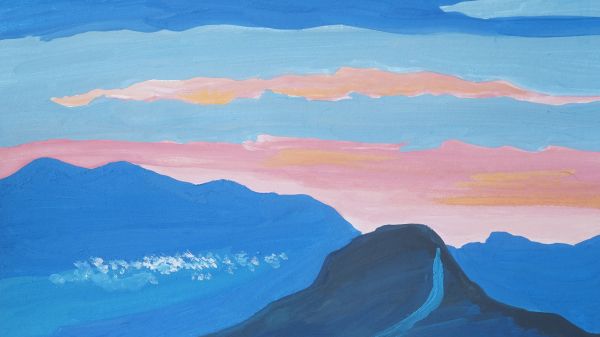Disabled Leaders Build Momentum for Climate Action

It's crucial that COP27 and climate action spaces at large dismantle decades of exclusion and ingrained ableism to center disabled people’s expertise and lived experiences in decision-making spaces.
The Conference of Parties (COP) has not always been accessible. A series of accessibility failures troubled people attending last year’s COP26. Lack of captions, sign language interpreters, and wheelchair-accessible entries signal who can and cannot participate on this global stage. This year, there are a few more events dedicated to disability topics, as well as some proactive initiatives from Egyptian hosts, but much more work remains.
Ableism: This refers to either individual or institutional actions and language that disadvantage or disempower people with disabilities, people experiencing disabilities or disabled people. Ableism includes mental, physical, and emotional disabilities. (The Avarna Group (2020). Equity, Inclusion, and Diversity Vocabulary)
“People with disabilities are often at the margins of disaster response. That’s a real problem.”—Germán Parodi
Not only are there barriers to physically participating at COPs, but there is also an ongoing struggle to center disability within climate conversations on this global stage. Disabled people are more acutely harmed by climate change and eco-ableism. Germán Parodi, co-executive director at The Partnership for Inclusive Disaster Strategies, points out that disabled people die or are injured 2 to 4 times more often than non-disabled people during or after a natural disaster. Yet there is still no Constituency for Disabled People to vouch for disability representation at COP27. This is important because constituencies help individuals and groups effectively advocate. But this is not just a post about vulnerability.
“Disabled people are expert adapters—we spend our lives figuring out how to live and thrive in a world that was not designed for us. If anyone is well-placed to figure out what a climate-friendly future where we also get to thrive looks like, it's us, disabled people.”—Áine Kelly-Costello
Ensuring disabled people are included in decision-making spaces builds momentum in moving climate action forward. The lived experience and expertise of disabled people are a driving force for presenting climate solutions with a unique and valuable perspective. In a panel on an inter-constituency movement, Pratima Gurung, academic activist and president of the National Indigenous Disabled Women Association Nepal, grounds the opening statement in a dialogue on how disabled people with multiple, intersecting identities are agents of change. "We are not just victims but we are the key to solutions, which needs to be realized in climate policies and plans with concrete implementation," says Pratima Gurung. Disabled people are at the forefront of imagining and advancing climate-friendly futures rooted in intersectionality, justice, and care.
For an account of disability leadership and accessibility at COP27, please read Áine Kelly-Costello’s “Can COP27 Contribute to Disability-Inclusive Climate Justice?” (And don’t miss their fantastic resource collection on climate change and disability!)
Climate change action encompasses a vast range of issues and solutions, but it is also defined by countless stories that unfold daily on a local scale. We all—disabled and non-disabled people—embody these stories. We all have a role to ensure climate solutions are equitable and just.
Here’s how you can engage. From the list below, support events and leaders bringing awareness to disability inclusion at COP27.
Disability at COP27
Watch or Listen
View the COP27 recorded side event, “Disability Rights and Inclusion in the UNFCCC: Leaving Nobody Behind in an Inter-Constituency Movement.”
Follow
- Global Platform for Disaster Risk Reduction #GPDRR2022
- Áine Kelly-Costello is a disabled storyteller. Follow @ainekc95.
- Jason Boberg is a climate change and disability rights expert. Follow @jgboberg.
- Jen Deerinwater is a Two Spirit, bisexual, disabled, award-winning Tsalagi journalist. Follow @jendeerinwater.
- Kera O’Regan is an Indigenous rights, disability rights, and climate justice advocate. Follow @keraoregan
Read
- Disability Rights UK includes solutions for climate governance in “A Message to COP 27.”
- Read “Cripping Climate Activism” by Anna Maria Joseph of Women Enabled International.


